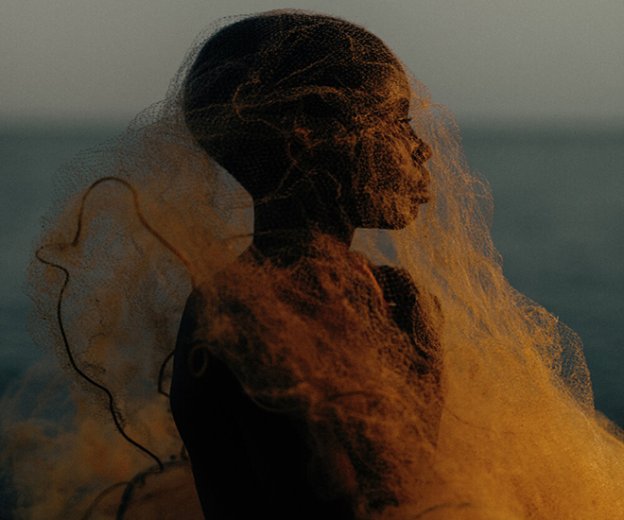The largest artificial reservoir in the world based on surface area, is contained behind the Akosombo Dam. Generating a substantial amount of Ghana’s electricity, Lake Volta spans the distance of approximately 8,502 square kilometres. Taking on a tumultuous life of its own and even the lives of those which pass it by, Lake Volta is imbued with a mortality and movement that not one has ever fully captured.
‘Boys of Volta‘ By Jeremy Snell Presents An Interior World, Inseparable From Its Material Reality
Set out to document the children who reside near Lake Volta, this New York-based photographer and cinematographer from Hawaii, spent a great part of his childhood living with his parents throughout Asia where he was inspired to use photography as a means to explore his surroundings. Known best for his humanitarian work, Jeremy Snell has photographed numerous campaigns for NGO’s such as Water and The International Justice Mission to help bring an end to the world water crisis and modern day slavery, alongside other global campaigns for brands such as Apple, Facebook, WWF and Unicef.
Drawn to portraiture from a young age, Jeremy Snell enjoys the process of visual storytelling through alluding to each subject’s personal backstory, whilst never fully being in control of each outcome – In fact the artist himself once said, “Telling stories of culture and populations not often seen around the world is my greatest desire in photography. My hope is that viewers begin to ask new questions and have new perspectives.”
Dubbed ‘Boys of Volta’, Jeremy’s latest project comprises of a series of photographs of local children set against the backdrop of Lake Volta. The project which follows shortly after his anti-trafficking campaign with non-profit organisation International Justice Mission, showcases an eerie and otherworldly quality of Lake Volta as it glows in a gradient of blue, orange, teal and pink throughout the day and night.
As beautiful as it may appear, beneath Lake Volta’s placid surface lie the skeletons of once dense forests, and every so often the presence of worn tree trunks rise up, out of the water whilst intermittent storms stroke its surface and flashes of lightning tear through the sky. The boys sit submerged, sometimes covered in fishing nets that extend their silhouette, with meditative expressions in the perpetually warm lake.
Traversing the vast body of water on wooden boats as the horizon looms in the distance, creating a sense of vastness that serves as a counterpoint to the deeply intimate portraits. “Once I arrived I was profoundly affected by the beauty and the character of the lake,” Jeremy recalls, “3000 miles of dammed water encompass what used to be large forests and hillsides, so the trunks and tips of thousands of trees can be seen as you drift through its waters. There were massive thunderstorms in the afternoons that would light up the vastness of the lake and strike awe into all those who were on it. Even midday on the lake seemed to have a certain eeriness that accompanied the heat and the floating trees.”
Through facilitating a sense of mutual security and respect with the kids, Jeremy Snell has successfully highlighted the immense beauty and complexity of life in the area, and the treacherous situations some of these kids find themselves in. ‘Boys of Volta’ presents an intimate look into the realities of others across the world, in societies where young boys risk their lives full-time in an effort to feed their families. Available now for estimated £40 via Setanta Books publications, the ‘Boys of Volta’ collection also offers a variety of signed prints and hardcovers.
By Julia Roxan











